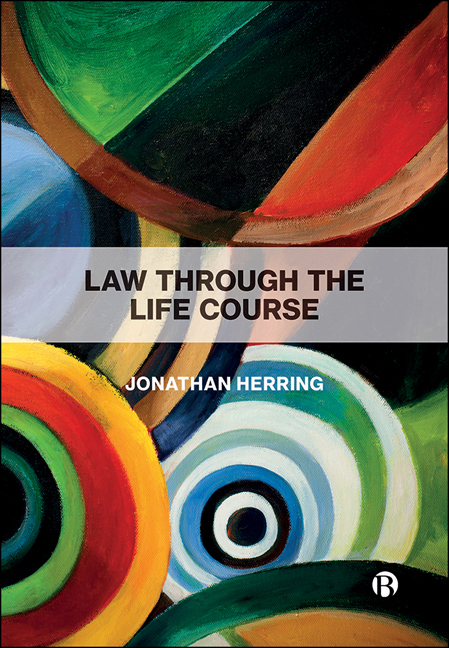10 - Conclusion
Published online by Cambridge University Press: 05 January 2022
Summary
In this concluding chapter I will draw together some of the major themes of this book.
The life course
The basic concept of the life course, with its trajectory through childhood, adulthood and old age, is familiar to most people. Yet the assumptions behind these different stages of life are often taken for granted. As discussed in Chapter 4, childhood is often seen as a time of vulnerability and lack of capacity. This is reflected, and reinforced, by the legal regime which sets in place a wide-ranging set of protections from harm, particularly in the area of sexual relations, and gives parents the authority to make decisions on behalf of children. Similarly, old age is commonly presented as a time of rest from employment and of declining capacities. Until recently this was reinforced by the state retirement age.
However, the standard vision of the life course is under increasing strain, from a range of sources. One powerful factor is individualism. This is the idea that people should shape their own life course. They should not be bound by expectations about how people are meant to structure their lives. Hence, the long-standing expectation that children should only be born to married couples is now honoured as much in the breach as the observance. Whether you marry your partner or not is seen as a matter of choice, and few couples will feel enormous social pressure to do so. Older people are encouraged to fight against ageing and live an active old age. Few people nowadays feel they must live in a particular way because it is the ‘done thing’. Indeed, many people might slightly look down on a person who has followed a traditional trajectory of education, employment, marriage, parenthood and retirement: they have followed the pre-set route, rather than developing their own version of the good life.
It would certainly be easy to find examples of the blurring of the lines between adults and children. Much of the literature on the ‘crisis of childhood’ is about children being seen to be engaging in behaviours which ‘should be left to adulthood’: sexual relations, viewing pornography or extreme dieting, for example.
- Type
- Chapter
- Information
- Law through the Life Course , pp. 265 - 270Publisher: Bristol University PressPrint publication year: 2021

